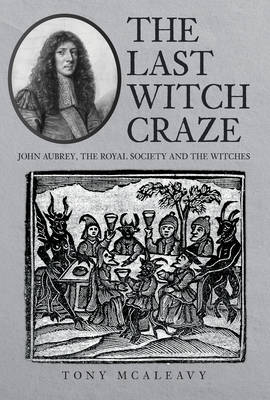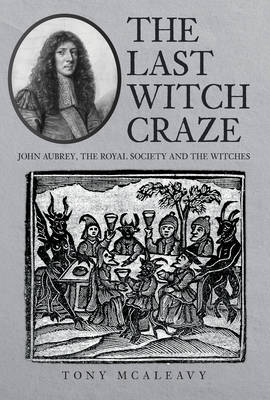
Bedankt voor het vertrouwen het afgelopen jaar! Om jou te bedanken bieden we GRATIS verzending (in België) aan op alles gedurende de hele maand januari.
- Afhalen na 1 uur in een winkel met voorraad
- In januari gratis thuislevering in België
- Ruim aanbod met 7 miljoen producten
Bedankt voor het vertrouwen het afgelopen jaar! Om jou te bedanken bieden we GRATIS verzending (in België) aan op alles gedurende de hele maand januari.
- Afhalen na 1 uur in een winkel met voorraad
- In januari gratis thuislevering in België
- Ruim aanbod met 7 miljoen producten
Zoeken
The Last Witch Craze
John Aubrey, the Royal Society and the Witches
Tony McAleavy
Hardcover | Engels
€ 27,95
+ 55 punten
Omschrijving
The seventeenth-century man of letters John Aubrey is remembered, above all, for his great biographical work, Brief Lives. He also wrote pioneering works dealing with education, geology, languages, archaeology, history, place-name study and folklore. Aubrey was a Fellow of the Royal Society. Other early members of the Royal Society included Robert Boyle, the greatest scientist of his generation and Henry More, one of England's leading philosophers. Aubrey, Boyle and More promoted new thinking about the natural world and championed the use of experimental science. They also believed in demons and angels and the authenticity of witchcraft. Aubrey recommended ways of countering witchcraft through horseshoe magic and suggested that gifted schoolboys should be taught to communicate with good spirits through the use of crystal balls. Boyle publicly endorsed the reality of witchcraft based on a case study from France. Henry More attempted to explain scientifically how witches could leave their bodies behind them when attending sabbat meetings. The Last Witch Craze tells the story of these men and others who attempted to reconcile science and sorcery. Their ideas were taken very seriously by others and provided an intellectual justification for the last lethal witch craze in Britain and America. Two fellows of the Royal Society - Joseph Glanvill and James Long - actively participated in witch hunts. In New England, those who persecuted the witches of Salem were fully aware that several distinguished members of the Royal Society of London were believers in the reality of witchcraft. The book also reveals that John Aubrey had a dark secret. His magical notebook survives in the archives of Oxford University. It makes clear that Aubrey personally practised a form of black magic and used charms to conjure up demons.
Specificaties
Betrokkenen
- Auteur(s):
- Uitgeverij:
Inhoud
- Aantal bladzijden:
- 288
- Taal:
- Engels
Eigenschappen
- Productcode (EAN):
- 9781445698427
- Verschijningsdatum:
- 15/12/2022
- Uitvoering:
- Hardcover
- Formaat:
- Genaaid
- Afmetingen:
- 156 mm x 234 mm
- Gewicht:
- 561 g

Alleen bij Standaard Boekhandel
+ 55 punten op je klantenkaart van Standaard Boekhandel
Beoordelingen
We publiceren alleen reviews die voldoen aan de voorwaarden voor reviews. Bekijk onze voorwaarden voor reviews.









